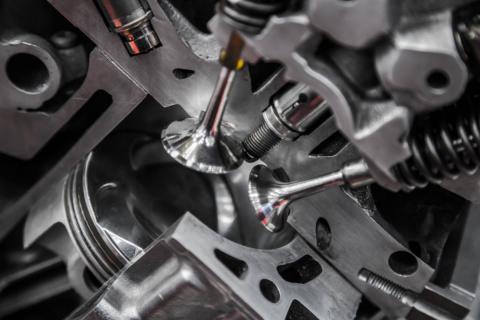Dealing with your vehicle can in some cases appear to be scary. You may picture yourself covered in oil, wedging yourself under your vehicle or slouched over the motor, scared that you're accomplishing something incorrectly or conceivably seconds from genuine harm to yourself or to your vehicle.
Popping the hood up, checking on the fluid levels, jump starting the car is as far as our experience and limited knowledge might get us through. For that, usually we would prefer to relax and rely on the professional to take care and to maintain our vehicle condition.
However, there are extremely straightforward approaches to deal with your vehicle whether you're a beginner, expert, or a vehicle lover. One of the easiest ones is to start utilizing fuel additives, as it has an assortment of incredible advantages for both you and your vehicle.
In this article, we will go over what fuel additives are, what they do, their benefits, and the different additive available types so you can get the best out of your car’s fuel performance and engine health.
What are Fuel Additives?

As fuel leaves deposits that can damage your car’s system, fuel additives will maximize its efficiency and also it can fix and prevent many problems. They are like medicine for your car, they can change your tired motor into a healthy sound one.
These days, certain fuel types might barely meet the minimum standards and might just miss to provide the sufficient protection for your car engine and fuel system.
Most fuel types, even the best (high octane) fuel types, are prone to leaving dangerous buildup deposits on the vital component of your vehicle fuel system, which might affect your engine lifespan.
In general, fuel additives are compounds that are formulated to work with the regular gas that you put in your tank, whether your car runs on a gasoline “petrol” or a diesel engine.
It helps in enhancing the quality and efficiency of car performance by keeping carburetors, injectors, and admission valves clean and renewed, while eliminating water from the fuel system.
Does it Actually Work?
Do you want to prolong the lifespan of your vehicle and make sure that your engine and fuel system are operating smoothly for years to come? The short answer for this question is yes!
Doing so is a type of preventive maintenance that will benefit your car’s performance, emissions, and economy to keep your car running at its ideal state.
Some people out there will try to tell you that fuel additives aren't necessary, in which to some degree, are right!
You don’t need to use fuel additives as often as changing your engine oil or other major car maintenance. But that doesn’t mean that you shouldn’t consider using it at all.
Utilizing a high grade fuel will prevent your vehicles’ vital fueling component system from a fast sludge and deposits build ups.
In other words, you should consider doing it every so often, as fuel additives cost is relatively low compared to other car maintenance services. At the end, it will prove to be, well, worth every single penny.
What Do Fuel Additives Do?

Many of us keep thinking about whether fuel additives really do anything. If you utilize a top notch additive correctly, you can normally anticipate that it should give the outcomes it guarantees.
You should know that additives aren’t one size fit all! It has a range of different types that each has a specific purpose. It should be utilized to address the right issues in your vehicle.
So, as the name says, additives contain one or more substances, such as detergents, lubricants, modifiers, that cleans your vital fuel system components while preventing new or additional accumulations from formulation and happening, as well as restoring the overall engine performance.
It permits you to upgrade certain parts of the gas you put in your vehicle consistently. They can be especially useful for old vehicles, diesel vehicles and driving in certain conditions.
Utilizing an octane booster on your car, for example, may push the octane levels higher than should be for your motor. You may not perceive any advantage in that circumstance.
Likewise, if you utilize your car a lot every day, a stabilizer probably won't do a lot. A stabilizer would address issues that happen when you don't drive your vehicle for time to time. It won't give the offered advantages it promises such as deposit removal and other.
Cleaning out your engine is just a way additives can improve your vehicle performance through a regular preventive maintenance. It might make your engine run smoothly and efficiently to avoid hard starts, lousy movements, among other benefits. Such as being wallet friendly and helping in preventing unexpected engine repairs.
What are the Benefits of Using Fuel Additives?
Many drivers know the benefits of regular oil change and regular fluid level check and top off. But when it comes to fuel additives, they usually miss on exploring the benefits and advantages it offers.
Many professional mechanics often classify fuel additives as “mechanic in a can” solutions to various fuel delivery problems, as they solve most issues without spending a fortune on fixes.
Here are few of the benefits that you can enjoy when incorporating the additives into your regular car maintenance:
- Improve engine performance. When fuel deposits are removed from fuel, the engine fluid will flow better. That implies that your motor will encounter less wear and perform to its maximum capacity while maintaining the fuel consumption amount.
- Maintain the used fuel quality. Fuel usually begins to break down when it goes through the various components of the fuel system. The breakdown makes the fuel degrade, which results in the formation of corrosive formulations and deposits such as gum, stain, and carbon that blocks the valves and carburetor jets. Utilizing a fuel additive can balance and stabilize out the fuel and delays the degradation.
- Defer and prevent breakdowns. The best fuel additives substances have consumption inhibitors and components that diminish wear, tear, and breakdowns of the metal parts. This will assist you with keeping your engine fit as a fiddle even without periodic maintenance checks.
- Minimize carbon discharges. Most fuel additives substances can eliminate the stored carbon in the fuel, which compares to better ignition of the fuel and less carbon emanations into the climate.
Can Adding the Wrong Additives Harm your Car?

You may hesitate before adding fuel additives yourself with no professional advice, fearing that adding it might harm your car.
Interestingly, regardless of whether you utilize the wrong additives, it likely won't hurt your engine.
These additives are intended to tackle explicit issues without causing other ones. This no-hurt plan implies that, all in all, you can securely utilize additives without agonizing over harming your motor or fuel.
However, beware that few additives, in some cases, can hurt the sensors in your system, particularly if used in high amounts!
So, What are the Different Fuel Additives Types?
Several types of fuel additives are available in the market. Each is designed to solve specific issues and problems. Remember to always read the label to determine the recommended usage amount.
-
Gas Treatment:
Gas treatments are made with polyisobutene, that's why they are cheap and broadly available. They help improve the nature of gas by disposing of the destructive carbon stored for a cleaner emission and separating water particles that can weaken the fuel.
-
Fuel Injector Cleaner:
Fuel injector cleaners are an improvement from gas treatments since they contain polyetheramine (known as PEA), which is one of the most strongest cleaning components. It additionally cleans more parts including the fuel injectors. The compound additionally eliminates the disposed clogs and carbon in the fuel channel to reestablish it to its optimal working level.
-
Fuel System Cleaner:
Fuel system cleaners ordinarily contain polyetheramine, or PEA, and are the best in class fuel additives. It cleans and ensures more parts than PIB or PIBA, in particular the direct fuel injectors. These purifying components are made to clean obstructs and other built up deposits while reestablishing the whole fuel framework to its unique original condition. These cleaners might be the main cleanser equipped for managing an extreme issue. So when you're changing your engine oil, just add fuel system cleaners to the gas tank.
-
Fuel Stabilizer:
You can anticipate that the nature of fuel should decrease over time if you haven’t driven your car for a while or have a backed-up stored fuel. Fuel stabilizers work to keep up the nature and quality of the fuel by absorbing water and delaying the oxidation and synthetic chemical breakdown of the fuel. It additionally maintains the stored fuel freshness for a long time.
-
Octane Boosters:
Although octane boosters aren't made with the best cleaning components, they work well in expanding the octane level in the fuel. Octane boosters help to eliminate the carbon deposits from the fuel consumption system and usually are added before filling up the gas tank.


